Germany’s SPD seeks alliance with Greens, FDP to replace Merkel-led coalition
Germany's finance minister and leader of the Social Democratic Party, Olaf Scholz, has said he plans to form a new three-way allied government with the Greens and Free Democratic Party (FDP) after winning Sunday’s federal elections.
In the wake of the historical loss of outgoing Chancellor Angela Merkel’s conservative bloc, Scholz said on Monday that the Christian Democratic Union (CDU) and Christian Social Union (CSU) should now go into the opposition.
“The CDU and CSU have not only significantly lost votes, but they have essentially received the message from citizens -- they should no longer be in government, but should go into the opposition,” he said.
Scholz said he hoped to strike a coalition deal before Christmas. Merkel will remain caretaker chancellor until a coalition is formed.
According to results revealed by the electoral commission, the Social Democrats have secured 25.7 percent of the votes, while Merkel's conservative bloc faced its worst result since 1949, gaining only 24.1 percent of the votes.
Greens came in third with a reassuring 14.8 percent of the vote, followed by the FDP and the Alternative for Germany party (AfD), with 11.5 percent and 10.3 percent respectively.
“Three parties gained strength: the SPD, the Greens and the FDP. This is a clear request formulated by the citizens of this country. These three parties must lead the next government,” Scholz.
Meanwhile, the CDU/CSU’s candidate for chancellor, Armin Laschet, said that he still had a right to form the next government despite coming in second.
He argued that “it has not always been the case [in Germany] that the parties that were in first place provided the chancellor.”
Scholz, however, disagreed, saying that “a lot of people ticked the box by the SPD because they wanted a change of government and wanted the next chancellor of this country to be Olaf Scholz.”
Merkel’s departure from the political stage after 16 years is now expected to change the course of Europe’s biggest economy, according to analysts, who say her absence will leave a substantial leadership gap in the continent.
Iran warns about consequences of normalizing violations of intl. rules
VIDEO | Gaza’s Ramadan: 1.7mn displaced struggle between hope and pain of war
Israel’s West Bank land seizures signal 'alternative homeland' threat: Ex Jordanian official
Tarique Rahman sworn in as Bangladesh’s new prime minister
UAE removes online references to Hind al-Owais after Epstein email revelations
Iran in no way seeking nuclear weapons: Pezeshkian
Oman: Iran-US indirect talks in Geneva achieve tangible progress
VIDEO | Press TV's news headlines


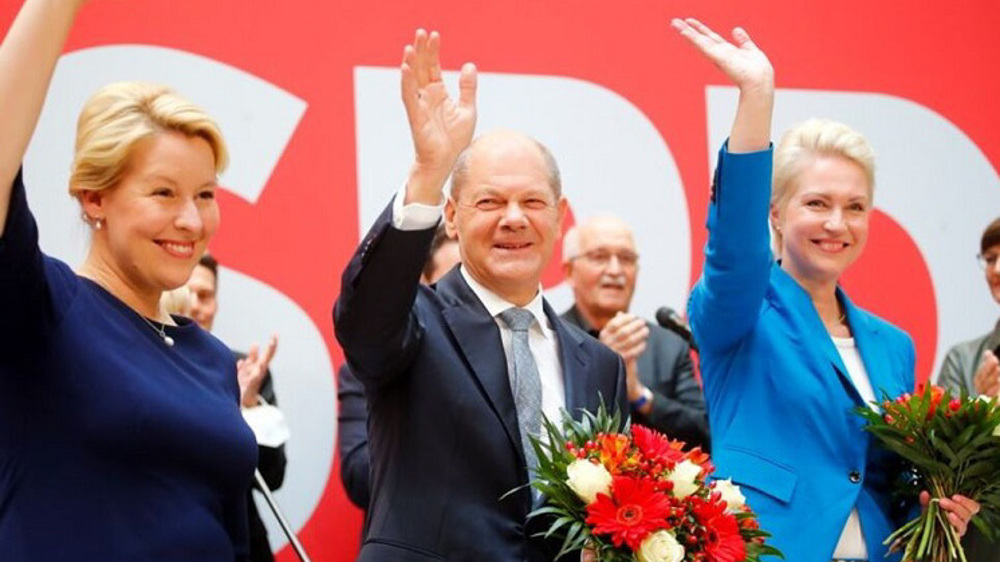
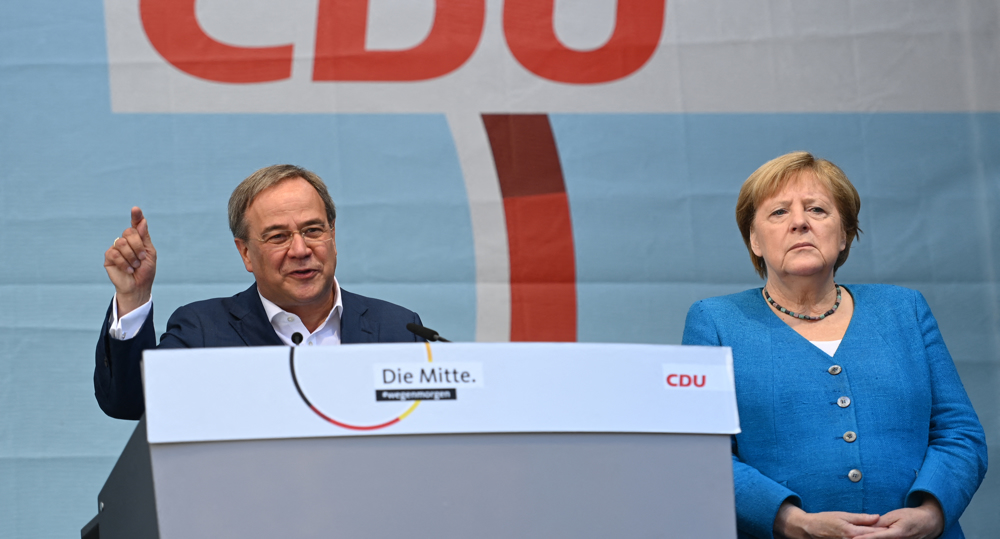
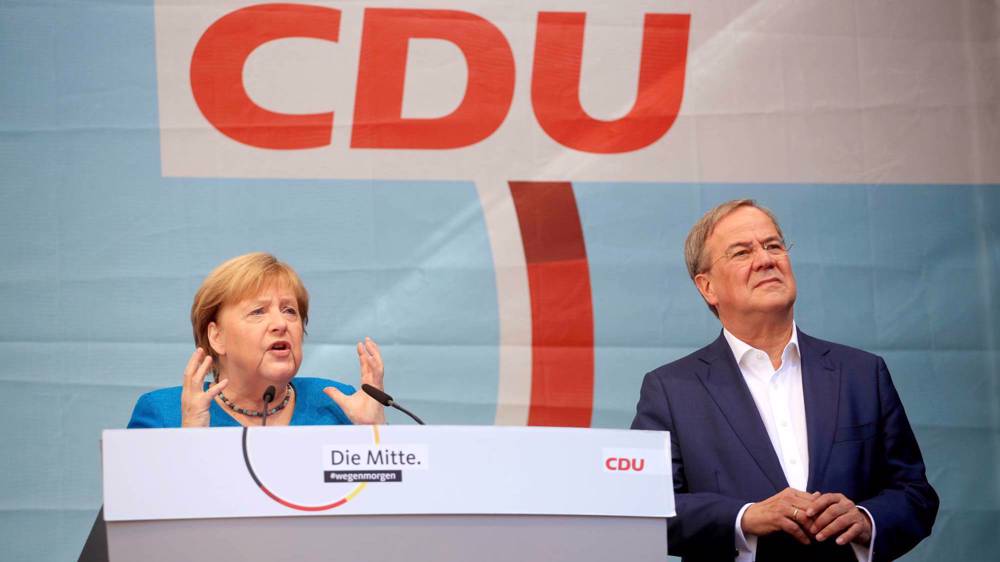

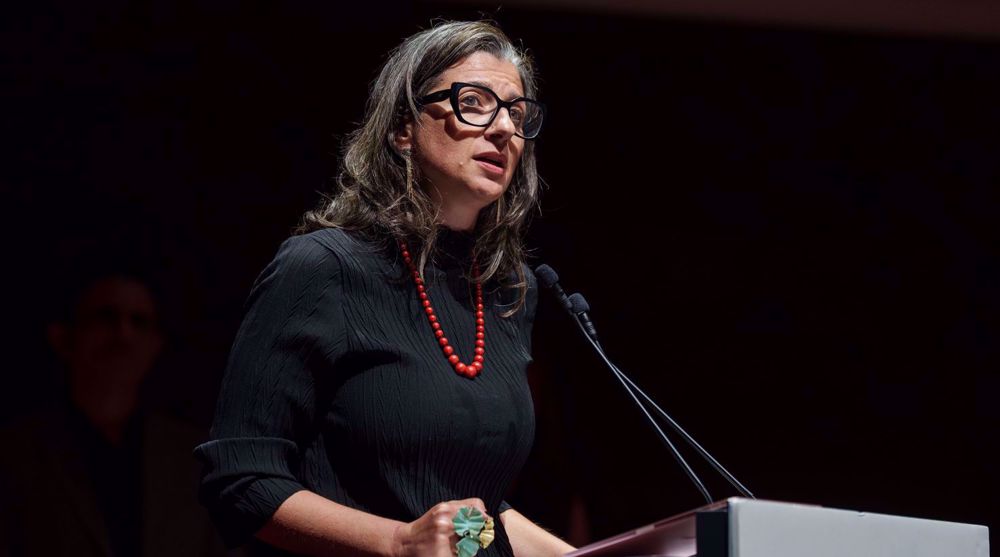
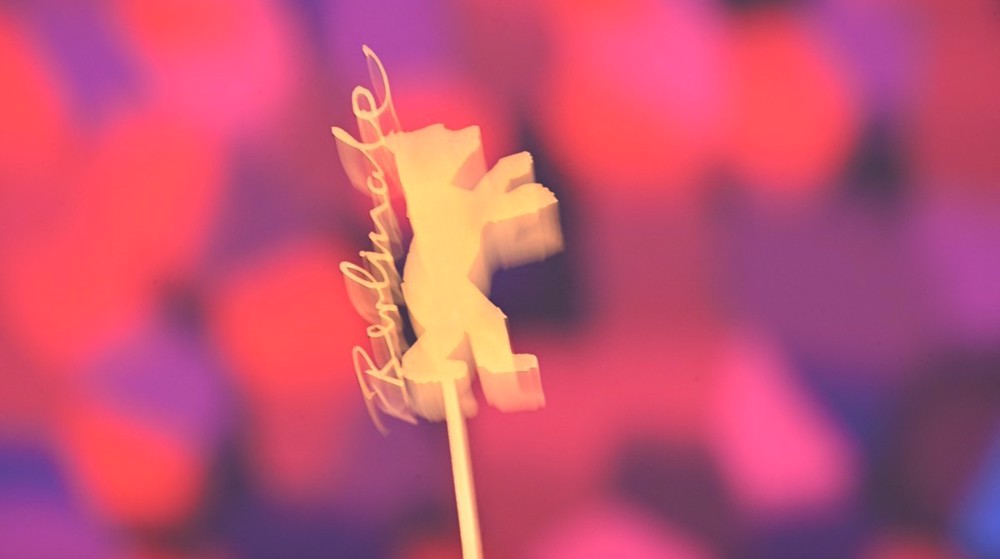



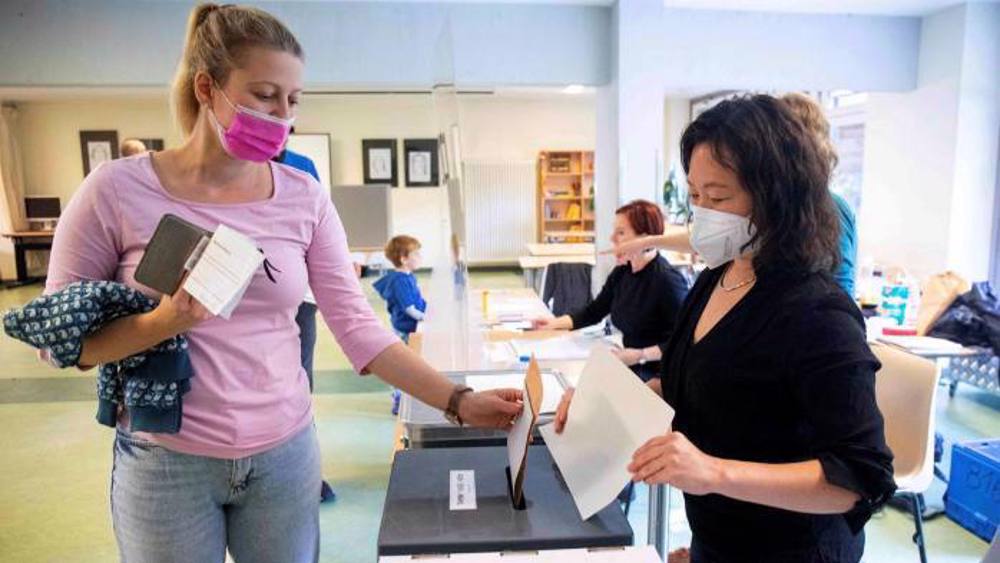
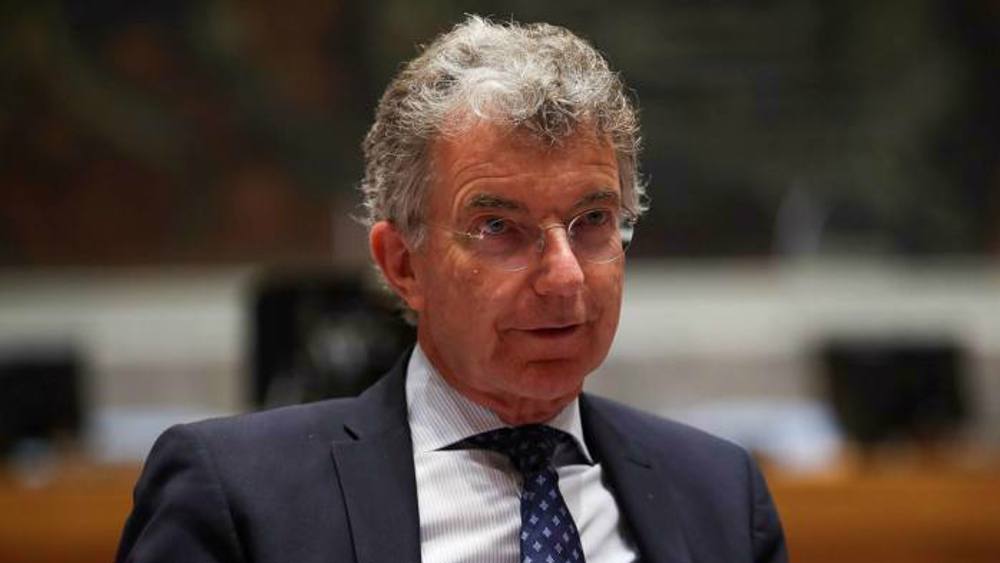

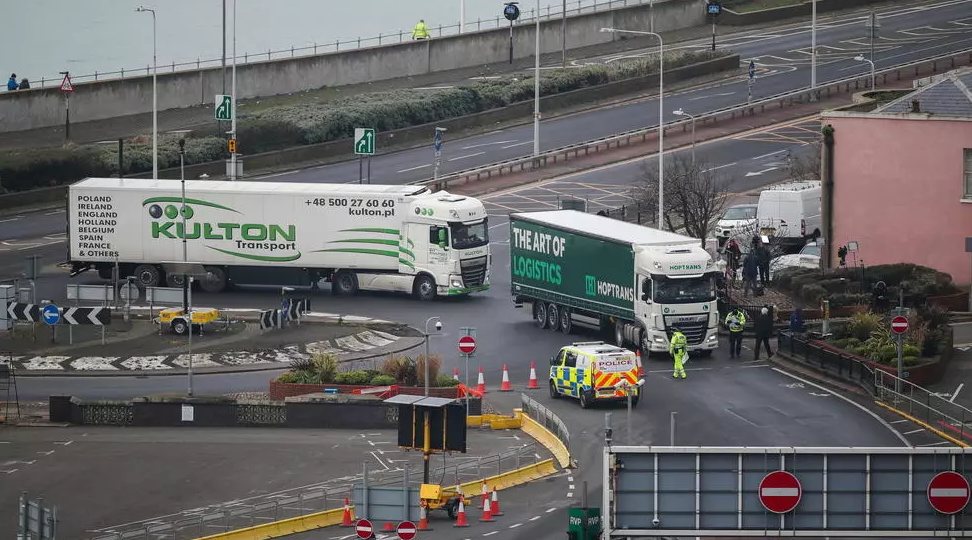
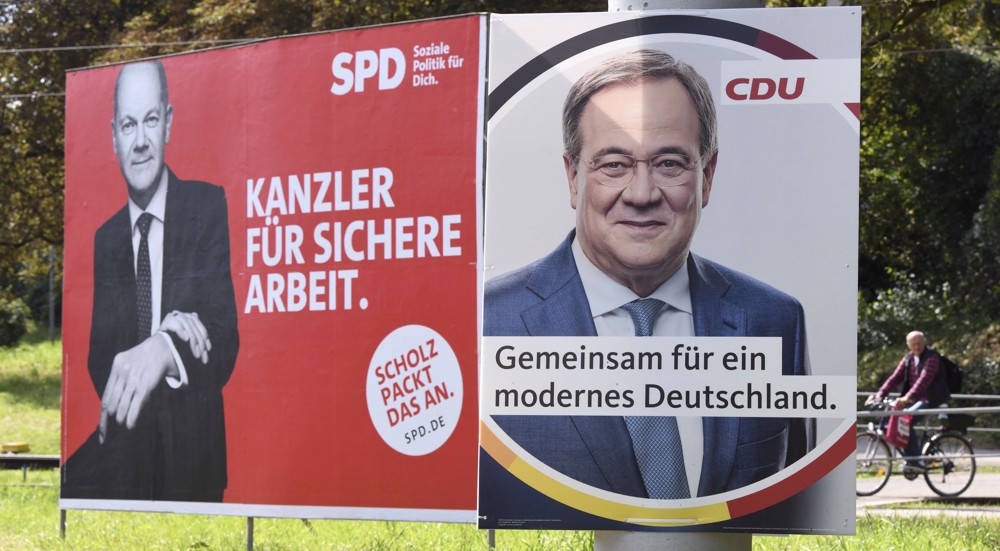
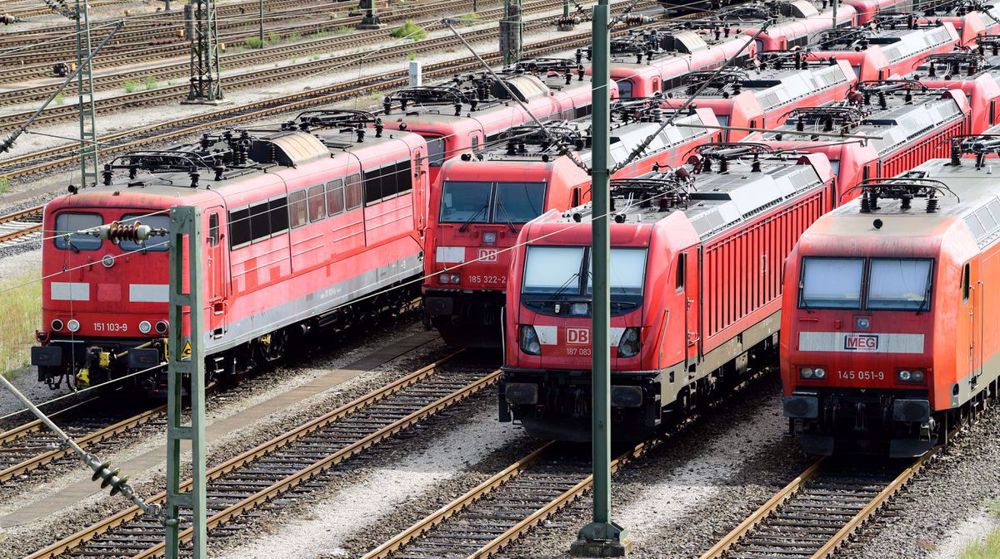

 This makes it easy to access the Press TV website
This makes it easy to access the Press TV website